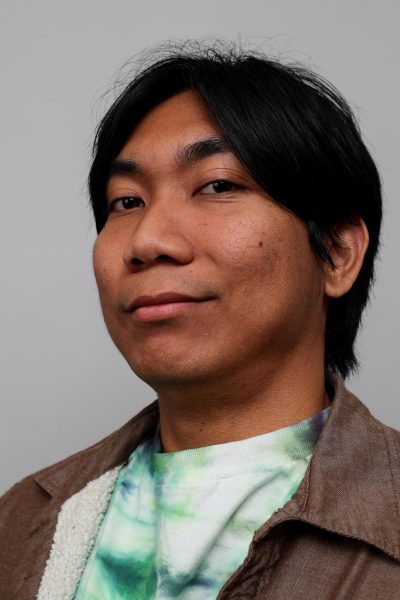Twelve-year climb
Jason Rhine’s journey to SPU to take on head coach position
May 10, 2022

For an athlete, a coach is not someone to take for granted. A coach is supposed to be a role model, someone they can learn from, look up to and trust to help them. On the coach’s end, the proposed responsibility is different. The coach must figure out what they will be able to pass down to their athletes and how they will help them reach their full potential.
Jason Rhine has been a college volleyball coach for twelve years and is starting a new chapter of his journey as Seattle Pacific University’s new volleyball head coach following former Head Coach Abbie Wright’s departure.
Volleyball has been a part of Rhine’s life since he was a student at Wheaton College in Illinois. Rhine was an athlete himself, but does not attribute his aspirations for coaching to his athletic ability or performance.
“I’m definitely not a coach because of my playing ability. It’s because of my love of the sport, and the fact I learned to love and appreciate and be passionate about it,” Rhine said.
Rhine began his coaching career as a graduate student at Trinity International University in Deerfield, Illinois. He spent three years as their assistant volleyball coach, which was incredibly convenient for him because he was already a student there. He saw himself progress as a coach and grow with every opportunity.
After Trinity, Rhine found himself in the same boat as most college graduates: he had to find a job. Fortunately, it wasn’t long after that he was presented with the opportunity to become the assistant coach at Covenant College in Georgia.
“I was definitely looking for my first full-time coaching job after grad school and kind of applied around at different situations, and Covenant was the first one to get back to me. I went through the interview process. I really liked the head coach and what she was hoping to do with the program,” Rhine said.
After two years with Covenant, the school recommended Rhine for an opening at a higher level of coaching at Colorado Christian University. During his time in the beautiful plains of Colorado, Rhine continued as an assistant coach. It was not until Rhine came to SPU that he got the opportunity to push to the next level.
“Their athletic director knew the athletic director at CCU, and it was a good fit, so I was able to move up to Division II, whereas Covenant was Division III. It was a fun jump, and now I’m here as the head coach,” Rhine said.
As an assistant coach, Rhine often followed the lead of whoever was above him, only occasionally leading offensive drills and training. Now that he is finally in the head coach position, Rhine’s challenge becomes what and how he will teach his athletes.
“I worked with five different head coaches before I moved here. One thing was learning different stuff from each of them and taking things that I liked about ways they designed practice and interacted with the athletes, trying to incorporate that with my personality and how I could interact with the athletes,” Rhine said.
As far as his plan for coaching strategies, Rhine recognizes volleyball as an offensive sport. Behind attitude and effort, a team wins by points, which are usually scored by a hit, bump, setter-dump, or spike from the offense.
“Volleyball is a pretty offensive game. If you look at the statistics, most teams in Division II score on offense about 60 percent of the time, so the game is a little more weighted towards the offense, and I think because of that it’s important to be good at offense if you want to have a high-level volleyball team,” Rhine said.
If nothing else, Coach Rhine’s greatest goal for his time as head coach is to inspire and drive his athletes to reach a higher level of play.
“Being aggressive and having a risk-taking mentality, and doing that from an environment of trust,” Rhine said, “They have to be able to trust each other on the court, they have to really learn to trust themselves and their training. So it builds to a place of confidence for them to achieve that higher level.”
No matter the sport, no matter the team, every coach has the same lessons to offer: attitude and application. A lazy coach drowns an athlete in strength and speed training while yelling from the sidelines for them to push themselves. A good coach will teach them how they can use their strengths in the game, how they can overcome what the opponents might throw at them, and how to pick themselves up.
“The team has high expectations. They have most of their players returning from last season to this season, and they had a lot of success last year, and I think they are hungry to keep pushing that forward,” Rhine said. “I want to keep pushing them forward to whatever that next level is. There are a lot of things out of our control in volleyball, but I do think our team is looking to play at a higher level, and that’s my goal and expectation for them, is to play at a higher level and just see what happens.”


























































































